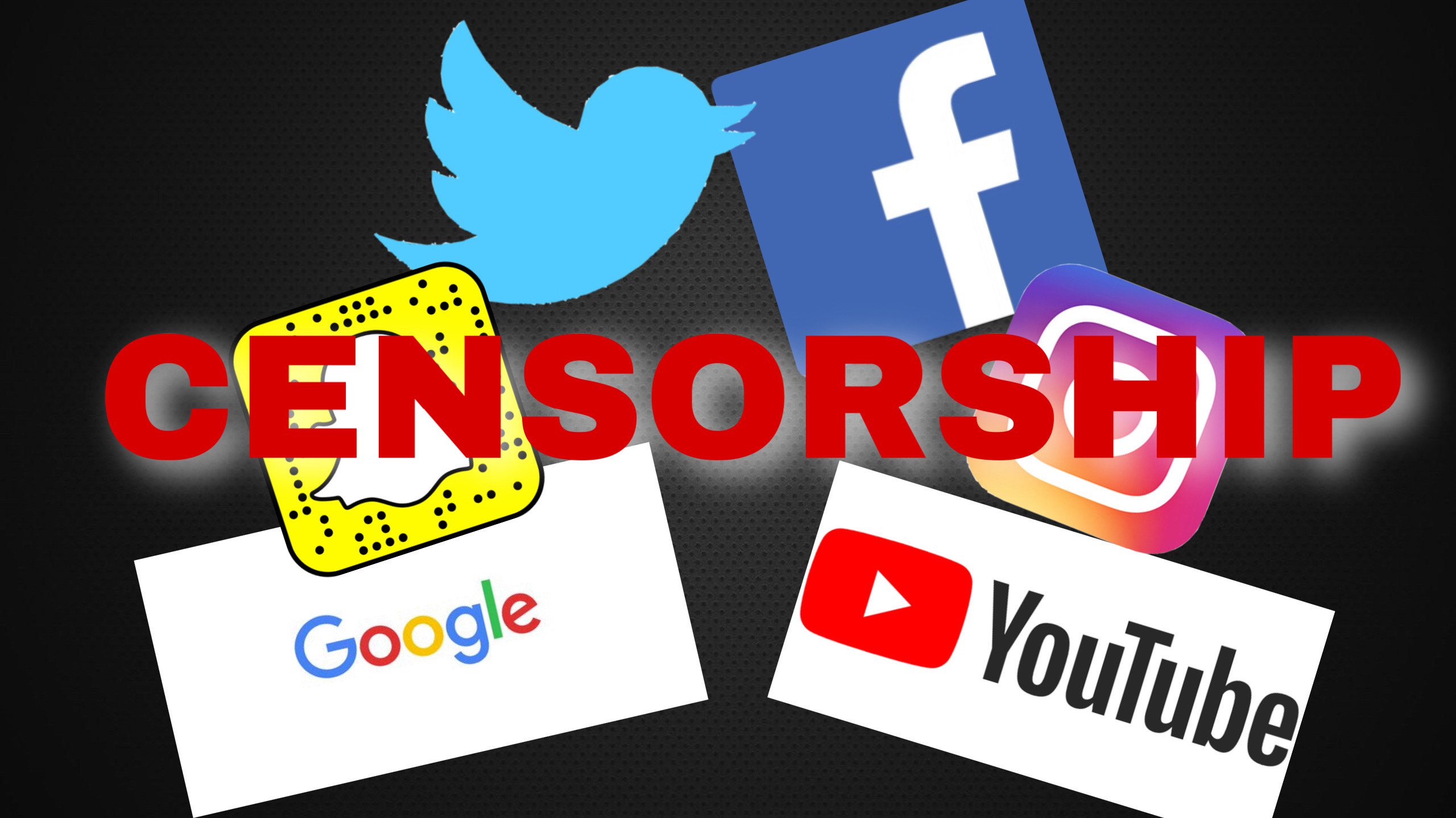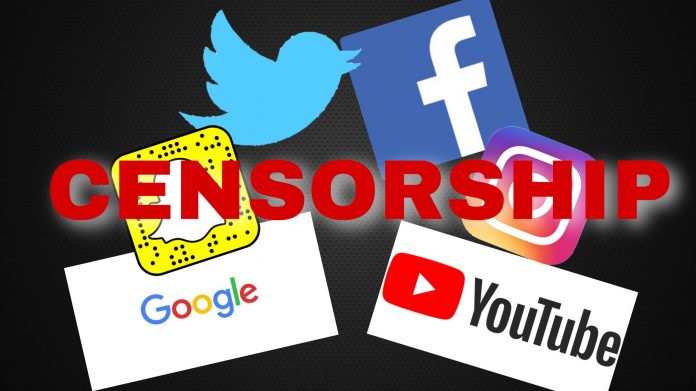
Guest post by Jason Fyk
In April of 2022, I submitted what might possibly be among the most essential claims in contemporary history … that you’ve never ever even become aware of Why? Likely due to the fact that we’ve found Section 230’s Achilles’ heel. Section 230 is state action (statutory representative authority) washed through a personal entity’s very first modification rights.
There is extreme argument over whether tech business are serving as personal entities or as state stars. Current discoveries consist of those made by Missouri AG Eric Schmitt about the White House’s impact on Big Tech, Congress’ letter to Gab, and Mark Zuckerberg’s own public admission that the FBI personally asked Mark to reduce the Hunter Biden laptop computer story (which later on showed real) as “Russian disinformation”. These examples all explain that federal government authorities are affecting a personal entity’s online small amounts choices and actions
But what if I informed you that these personal business have been taken part in state action the whole time, without their even understanding it, and there is evidence in the statute itself? What if I informed you, that we’re currently tough Section 230’s constitutionality in court, and the majority of the world is totally uninformed? Would not that be considerable to you? It’s most likely considerable to everybody that utilizes the web.
Anyone that informs you that Section 230 is “settled law” has lots of you understand what. Justice Thomas kept in mind, in Enigma vs Malwarebytes, the United States Supreme Court has actually never ever analyzed this law. So, how can it be settled law, if the greatest court in the land has never ever analyzed it? It’s not, however we are hoping they will lastly analyze Section 230 and settle the matter. In April, we submitted a Constitutional Challenge of Section 230, untwisting the Gordian knot that Congress and the courts have actually produced over the previous 20 years. We’ve gone through mountains of what Justice Thomas called “doubtful precedent” and discovered Section 230’s “origin” issue, its Achilles’ heel, so to speak.
It all boils down to the separation of powers and entrusted authority. Congress might not perhaps control the Internet market. Not even the FCC might perhaps wish to manage all material, so they chose to entrust that task to the supplier or user of an interactive computer system service or gain access to supplier. Oops, huge error! Simply put, Congress handed over
their legal authority( i.e., giving civil liability defense), straight to personal self-centered entities, who now have the “security” of federal government to willingly limit the legal speech of third-parties ( i.e., an authority the United States itself, does not have). I understand what you’re believing, and the response is: YES. These business do have a very first change right to keep or eliminate material on their residential or commercial property, however the very first modification does not entitle them to liability defense when they do so, specifically when they do so unlawfully.
Liability defense comes as a statutory advantage to act upon behalf of Congress to willingly obstruct and evaluate offending product. If Section 230 safeguarded the Service Provider’s rights, it would be a redundant defense. Rather, Section 230 provides these personal business the voluntary option to participate in state action, functioning as a “Good Samaritan,” however if and when they willingly select to act, the statute plainly specifies the state instruction to which their actions need to adhere, in excellent faith. It specifies “ any action … to limit … product … think about[ed] … profane, salacious, lascivious, unclean, exceedingly violent, pestering, or otherwise objectionable, whether such product is constitutionally secured” Area 230 basically states in the text itself, the federal government does not care if the products are “constitutionally secured,” go on Big Tech, do what you desire, we got your back ( i.e., liability security). Area 230 is anything however a defense for our First Amendment rights.
What failed? Practically everybody misreads the statute as “any [voluntary] action willingly taken” which it neither states, nor does it suggest. If it was composed that method, it would in truth be personal activity however it’s not. Context and sentence parsing is extremely essential in law. The expression “willingly taken in great faith” sits in between “any action to limit product” and describes the choice on whether to act (” willingly taken”) and how they should act (” in excellent faith”). If and when they pick to act, “any action” refers to the Congressional instruction ( i.e., the state instruction): to limit products that are otherwise objectionable even if they are Constitutionally safeguarded product
What does this all imply? It implies that any action they take, that they look for “security” for, should have been a state action, taken in great faith under the legal regulation. It’s ridiculous to believe that Congress offered personal entities the authority to take any action they desire, and to do anything they desire, no matter how illegal. It’s a lot more unreasonable to believe Section 230’s meant function was to approve a personal entity the authority to tortiously hinder, and limit their own competitors, under the defense of federal government. That’s an argument
I believe both sides of the political aisle can concur with. That’s particularly what Facebook did to me and why I’m still suing them to this day.
Section 230 is not limitless; it restricts releasing actions to the state regulation, to “willingly” block and screen objectionable product. When the FBI asked Mark Zuckerberg to “willingly” take action, in great faith, to “willingly” limit the Hunter Biden laptop computer story, it is truly no various than Congress asking personal business to “willingly” limit objectionable product in the statute. Precisely where is that “voluntary” line drawn? Here the federal government’s demand is a lot more apparent than the demand in the statute, however it’s the exact same standard demand. The FBI (not Facebook) plainly thought about the Hunter Biden laptop computer story “objectionable” (albeit, it showed to be real), and they asked for Mark “willingly” obstruct it, and after that he acted at their request. Mark acted voluntary as a representative of state. That’s precisely what Section 230 does. What the FBI did, totals up to …
Hey Mark, do you mind “willingly” reducing the Hunter Biden laptop computer story for us, as Russian disinformation, however we’re not informing you to reduce that info or anything, since that would be unconstitutional and things for us to reduce it. ~ genuinely, your buddy and protector, the FBI
So, how did we get here? Well, sadly, the incorrect legal analyses of Section 230 over the previous twenty years have actually led to a mountain of “doubtful precedent”. Doubtful precedent that numerous legal scholars depend on when drawing interpretive conclusions. Their info is bad and their conclusions are frequently incorrect. Instead of depend on bad precedent, we returned to the root building and construction of the law. Don’t even get me begun on what an “Intelligible Principle” is, and why there are quotes surrounding the term “Good Samaritan.”– take pleasure in that research study bunny hole *
So to address the concern: “does Section 230 license a personal entity to willingly serve as a state star?” The response is a definite– YES! They are state stars, specifically if they look for Section 230 defense. These brand-new discoveries do not actually alter what we currently understood was state action concealed behind personal entity’s rights. The more vital concern that we must ask is whether that authority ( i.e., Section 230’s authority) is Constitutionally sound? That’s precisely what our Constitutional Challenge is asking of the courts– to translate the statute, and choose at last, if Section 230 is Constitutional. Can the United States constitutionally hand over quasi-legislative regulative authority straight to a personal corporation, who can willingly limit the life, liberty, residential or commercial property and/ or the legal complimentary speech of a third-party United States person under the defense of federal government? Isn’t Section 230 an infraction of every user’s very first and 5th change rights? I would state the response is a conclusive– YES, however we will quickly discover the genuine response to those concerns.
As Congressman Gohmert explained back in April, in a interview on Capitol Hill, “ We have a case ( Fyk vs Facebook) where the courts could, and ought to clarify what Section 230 need to suggest … It should be reversed, however it’s not going to occur with [a Congress] that have actually deserted their civil liberties roots.”
Congressman Gohmert precisely acknowledged that rescinding Section 230 is not going to take place when Congressmen have actually deserted their civil liberties roots, which’s why we’ve carried out the judicial method. On September 13 th2022 the United States Attorney General’s workplace is arranged to react to our Constitutional Challenge The executive branch’s position on whether to keep or withdraw Section 230 will quickly end up being perfectly clear. There is still hope for the legislature. Congress requires to go back to its civil liberty roots Area 230 is not a lost cause! It can still be repaired and we’ve ( i.e., myself and David Morgan) made the effort as civilians, to do precisely that. We’ve investigated and put together the Online Freedom Act which supplements the credentials, legal oversight, and procedural safeguards that are presently missing out on in Section230 We aren’t transforming the wheel, so to speak, simply setting up more spokes, so that Section 230 operates as meant and appreciates the rights of all web users.
But we require your assistance. Please call your Congressman or Congresswoman and inform them to listen to us, and to enact the Online Freedom Act and/ or assistance Congressman Gohmert’s Congressional Amicus of our Constitutional Challenge We’ve discovered Section 230’s Achilles’ heel and we are intended right at it. Assist us recover our civil liberties online.
For more info on Section 230, or to support our efforts to restore your liberties online, please go to the Social Media Freedom Foundation We require your aid!
Jason Fyk
– Founder of the Social Media Freedom Foundation
– Founder of the Online Freedom Caucus
– Co-author of the Online Freedom Act
https://socialmediafreedom.org/
The post Private or State Action?– Section 230’s Achilles’ Heel appeared initially on The Gateway Pundit
This article may have been paraphrased or summarized for brevity. The original article may be accessed here: Read Source Article.





![President Trump Gives Barron A Shout Out At Inaugural Parade: His Unexpected Response is Pure Gold! [VIDEO] president-trump-gives-barron-a-shout-out-at-inaugural-parade:-his-unexpected-response-is-pure-gold!-[video]](https://news.lateawakening.com/wp-content/uploads/2025/01/35545-president-trump-gives-barron-a-shout-out-at-inaugural-parade-his-unexpected-response-is-pure-gold-video-100x70.jpg)



